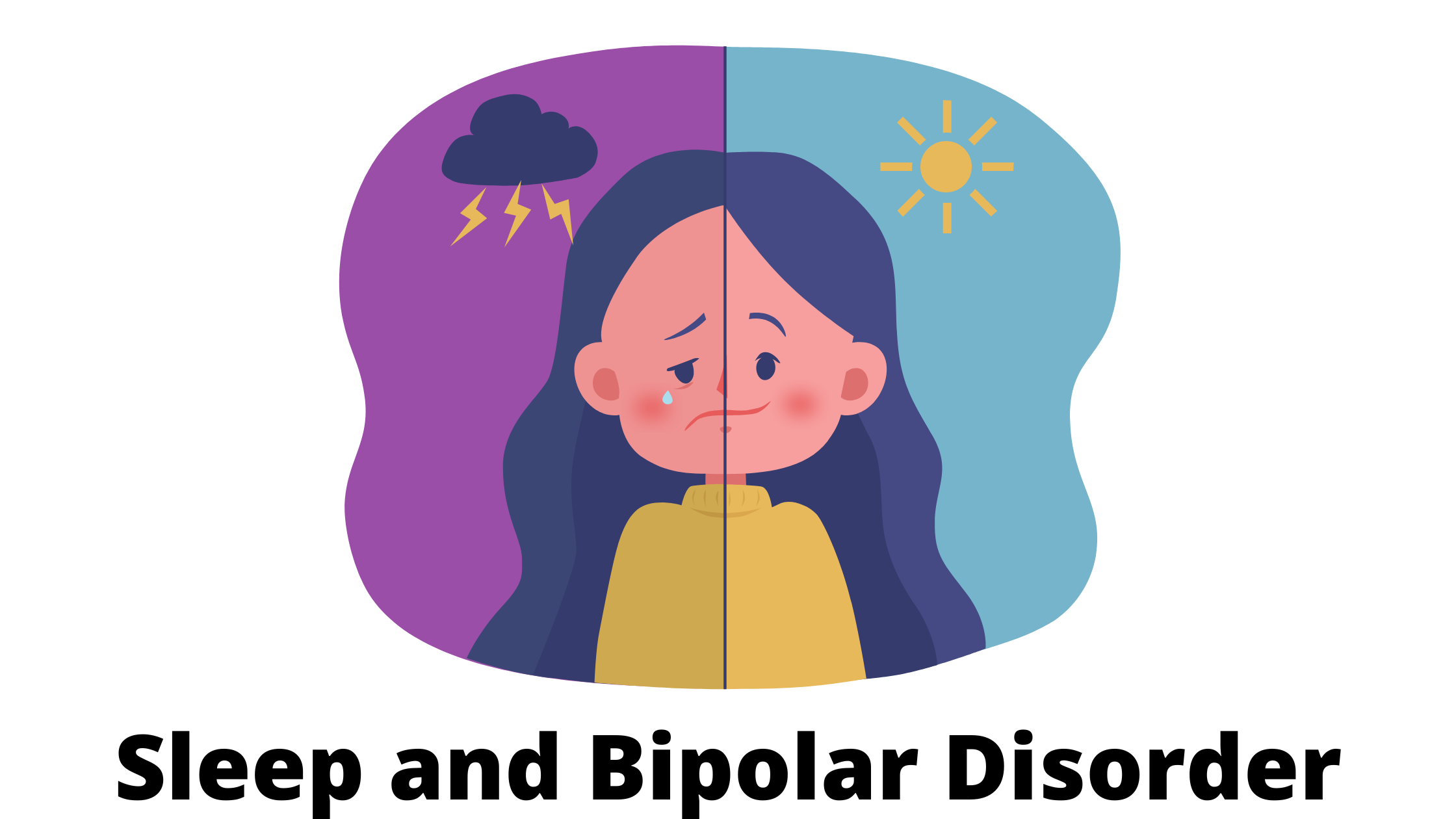
Bipolar disorder is a mental illness that can affect one's ability to control their moods. Although someone who is moody or seems to switch personalities is colloquially called "bipolar", the actual definition refers to the fluctuation between depressed moods and manic moods. Sleep plays are large role in highlighting bipolar, and bipolar disorder can truly disrupt one's sleep schedule. Continue reading to find out more about bipolar disorder and its' relationship with sleep.
What is bipolar disorder?
Bipolar disorder is a psychiatric disorder that describes when someone fluctuates between a depressed mood and a manic mood. Depression involves feelings of hopelessness, lack of energy or interest, and the inability to really feel joy. Mania are feelings of high energy, grandiosity, with a stream of ideas and impulsive behaviors.
It's possible to only experience one of these disorders, but when someone goes back and forth between them, then it's referred to as bipolar. There are two types of bipolar. Bipolar I is a disorder with at least one full manic episode. Bipolar II is a disorder with hypomania and depression.
Bipolar disorder is normally treated with a mood stabilizer, such as lithium. It is diagnosed by psychiatrists and normally takes a while to reach a diagnosis.
How bipolar disorder affects sleep
A lack of sleep can really highlight this disease in someone, as they are truly unable to stabilize their mood and may experience even greater mood swings than normal.
Bipolar disorder can also disrupt sleep in many ways. One way is by causing insomnia. Insomnia is the inability to go to sleep and remain asleep. Hypersomnia is the opposite, which causes a need to sleep for prolonged periods of time. Both are very prevalent in bipolar. During manic episodes, individuals may not feel tired even if they have only received a few hours of sleep, and they may think sleep is not as important during those episodes.
Rapid eye movement sleep abnormalities happen during the cycle of sleep where dreams take place. They can make dreams very vivid or bizarre which can contribute to the potential psychotic features of bipolar.
If individuals have a drug addiction, and they use during their episodes, then they can also disrupt sleep, especially during withdrawals or consumption of stimulating drugs such as cocaine or amphetamines.
Co-occurring sleep disorders, such as bipolar disorder, can also disrupt sleep as they may be more prevalent in those with bipolar disorder.
Sleeping better with bipolar disorder
Sleep is very important for everyone, but for those with bipolar disorder, it may may be the best way to help manage some of the symptoms associated with bipolar disorder. Mood regulation, reduced feelings of anxiety and depression, and regulation of metabolic processes and cortisol release are all benefits of getting good sleep. This is why it's so important to try and maintain a normal sleep schedule and truly prioritize it, especially if you have been diagnosed with a sleeping disorder.
After understanding the importance of sleep, the next way to sleep better with bipolar disorder is to understand that your medication may have side effects. They may disrupt the sleep-wake cycle. You can overcome this by moving your bedtime and wake time later and later until the best amount of sleep is reached. Another way is to try bright light therapy in the morning if you are having trouble sleeping.
Bright light therapy signals to the brain that that it's daytime, and the brain will stop producing melatonin and start producing cortisol. This helps get everything else started and regulates your sleep cycle.
If your medication is too disruptive, your doctor may suggest changing it to something that doesn't have as many side effects.
In addition to making those changes, improving sleep hygiene is another key way to get good sleep while dealing with bipolar disorder. Good sleep hygiene includes activities to help you wind down at night, reducing your exposure to light and noise throughout the night, keeping your bedroom cool, and avoiding stimulating activities and medications or substances late at night. If you are experiencing a manic or depressive episode, consult your health provider for some helpful techniques that can help you get ready for bed.
If you are unsure how to get good sleep, or think your sleep problems may be unrelated to your bipolar diagnosis, then please click the orange button below to take a free online sleep test.
https://www.webmd.com/bipolar-disorder/guide/bipolar-disorder-and-sleep-problems#:~:text=For%20three%20out%20of%20four,some%20people%20with%20bipolar%20disorder.

